What do you do when your worst secrets are held for ransom? Listen now to find out how a new scheme could financially ruin you.
Don't be fooled! Criminals are using these tricks to get malware apps on your iPhone

Before some iOS apps are made available on the App Store, they often go through public beta testing. Therefore, you would need a unique app, called TestFlight, to access the early versions of an application. Tap or click here to see how Apple made it easy to report App Store scams.
Generally, there are two versions of TestFlight available. If developers want to share their early access app with a small group of people, they can email invitations to 100 users. More extensive public tests allow for up to 10,000 participants.
But the simple security measures in the TestFlight program have led to cybercriminals exploiting it with malware. Read on for ways to spot the infected applications and what you can do about them.
Here’s the backstory
Before an app is released for mass consumption, it must go through several checks. First, the application needs to be cleared by Apple’s security team and then submitted to the App Store. This ensures that the app doesn’t hide malware or nefarious operations.
But by installing the TestFlight app, any iOS user can download and install applications that haven’t gone through the pre-release checks. So it’s an effective way to get many people to beta test your app. And for some, install malware.
A report by Sophos details how criminals are now exploiting this functionality to bypass App Store security checks. By sending out as many as 10,000 email invitations, many were instructed to download BTCBOX, an app for a Japanese cryptocurrency exchange.
After installation, the app tricks you into thinking it is a legitimate cryptocurrency investment platform. But once you make a deposit, the money will go straight to the criminals. When you want to cash out, the scammers claim you must pay a 20% tax.
What you can do about it
Sophos calls these CryptoRom scams, and there is another trick up their sleeves. To further prevent discovery from Apple’s security systems, scammers abuse the iOS WebClips feature. Instead of sending an app, you’ll receive a malicious web page URL.
Through the WebClips functionality, the webpage presents itself as an app displayed on the iPhone’s home screen. It could look like a legitimate app if you don’t pay close attention to it. Here are some tips on how to stay safe:
- Never download an app if you aren’t sure where it comes from or what it is supposed to do. Always read reviews on an app and its developer before downloading.
- Make sure that you are on a legitimate website for cryptocurrency investments. Check that the URL is correct and that there aren’t any typos, misspellings or suspicious elements. Tap or click here for five tips for buying crypto the safe way.
- Never download applications from third-party app stores. Stick with apps from the official Apple App Store or the Google Play Store.
Giving up Kaspersky? Get a year of Kim's antivirus pick for only $19
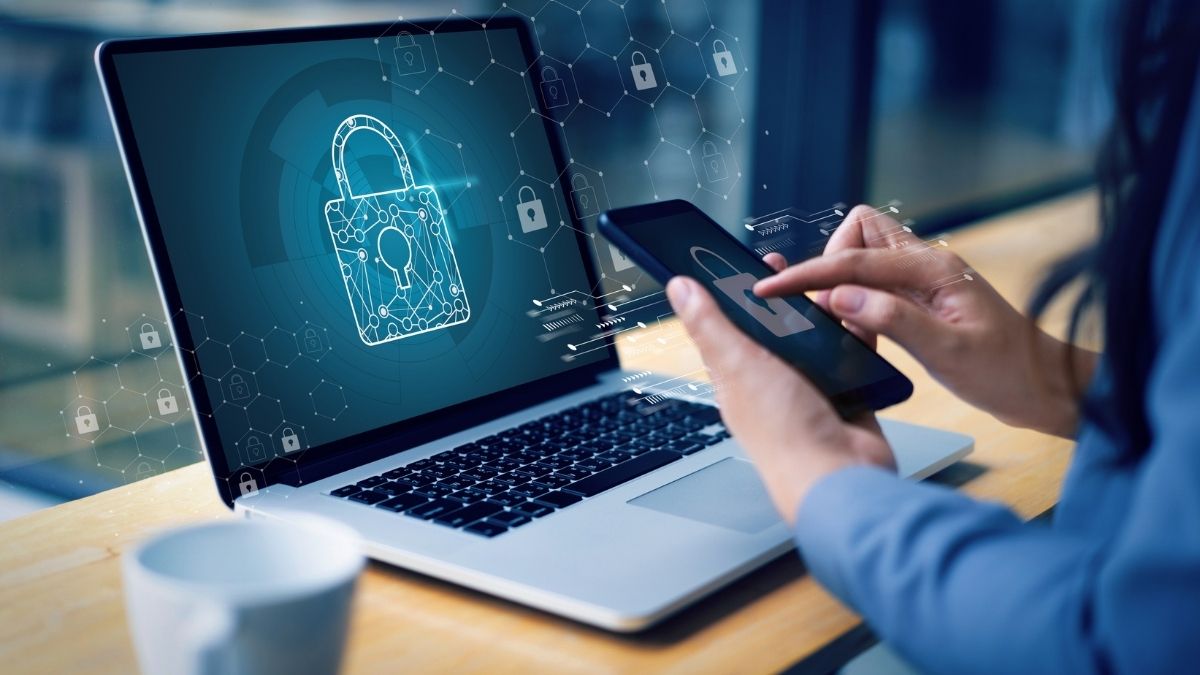
With tensions mounting across the world during the Russia-Ukraine War, cybersecurity experts warn not to use Russian-owned Kasperksy antivirus protection. Here’s why.
A question I get time and time again is, “What’s your antivirus recommendation?” Whether you’ve never used antivirus, stopped years ago, or want to get rid of Kaspersky, I can help.
International cybercriminals have a new type of ransomware
Crypto tip: Simple mistake costs man $120K – Don't let it happen to you

You’ve probably heard of cryptocurrency, the digital medium of exchange that has become a darling of social media influencers. You don’t need to be a crypto investor to know that there’s no such thing as easy money and that crypto, in particular, is an especially risky investment.
Free check to see if your router has been hacked by criminals

The internet is a crazy place. Not only do marketers and advertisers follow your every move, but there are also hackers and scammers lurking in the dark corners, ready to pounce on your personal information.
At least marketers and advertisers want to make money off of you. The hackers and scammers we’re talking about want to flat-out steal your money by hijacking your personal information.
5 clever scams making the rounds you need to know about

Another day, another scam. Or should we say scams? There seems to be no end to discovering crooked schemes that use every means imaginable to trick people out of their information, data and finances.
Everyone’s received text messages from unknown numbers. Sometimes it’s a service or business you use that isn’t in your contacts. It could be your food delivery app letting you know that your grub is on the way. It could also be the first step in a scam. Tap or click here to learn how the scheme works and how to keep from falling victim to it.
Google is making a major security change for all users – Check your settings
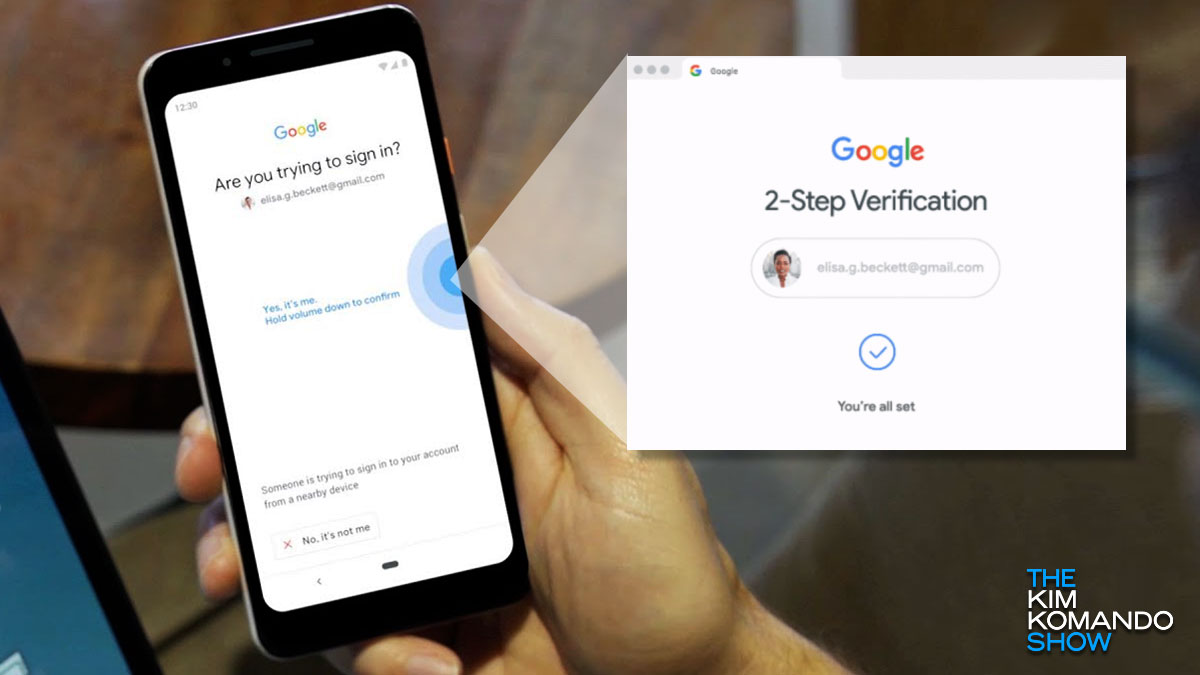
Strong passwords are a given when it comes to protecting your accounts, devices and data, but that’s not enough. Cybercriminals are relentless, and you can never have too much protection. That’s where two-factor authentication comes in. 2FA adds an extra layer of security when you log in to an account or unlock a device.
Scary new malware that live streams your screen - Here's what to look for

Ever feel like somebody is watching you? Years of horror movies have given us a real sense of fear of being watched by unsuspecting people. When it comes to tech, malware could be the suspect. Millions of PCs are infected with malware. Tap or click here to check your Windows computer now.
Warning: Free VPNs are putting you at risk

There’s nothing wrong with trying to save a little money every now and then. Cutting back on dining out or getting a $6 latte every day is a good place to start.
But one thing you definitely don’t want to skimp on is online security. You think you’re saving money with free VPN downloads or apps, but they will cost you in the end.
5 hidden ways a VPN can make life better and more secure
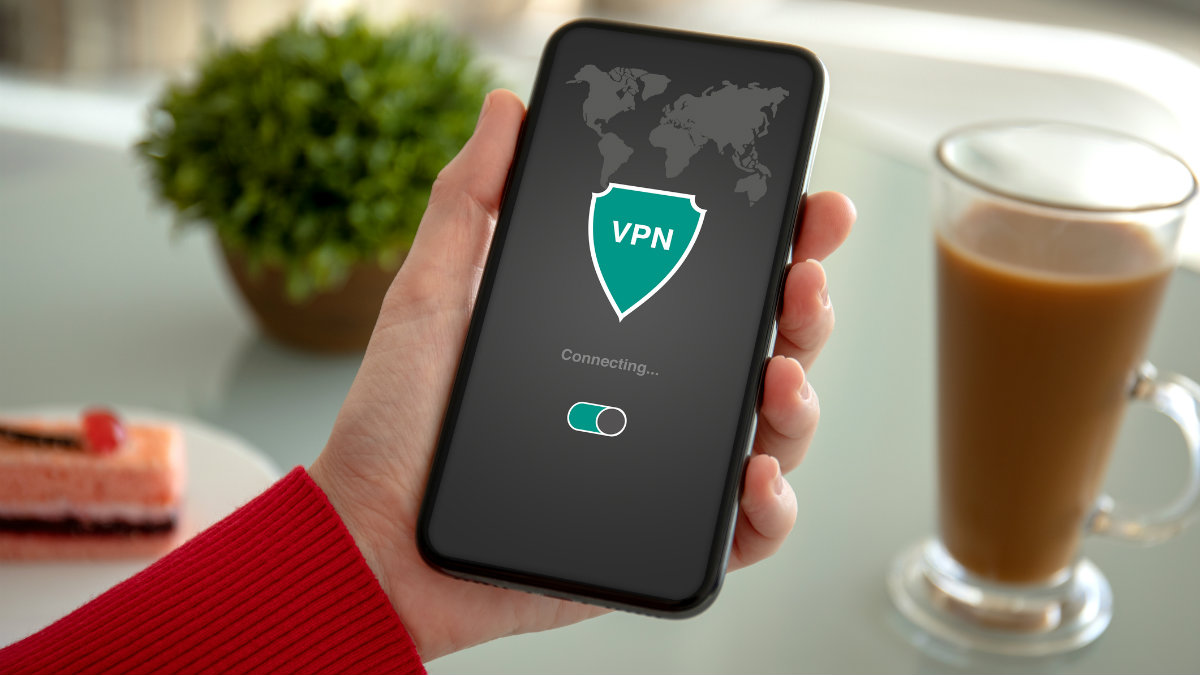
Between all the cybercriminals and downright snoops in the world, it’s getting more difficult to protect your privacy.
A VPN gives you a secure bridge between your devices and the internet. You might not even realize just how important this is and all the ways a VPN comes in handy. Keep reading for five uses you might not know about.
Influencers shilling crypto, update your iPhone, medical data breach
Cryptocurrency is going mainstream, and influencers like Kim Kardashian are cashing in. Apple just released an urgent update for older iPhones and iPads, and a new medical data breach could give cybercriminals even more fuel to come after you.
Tech Refresh: Influencers shilling crypto, update your iPhone, medical data breach
Cryptocurrency is going mainstream, and influencers like Kim Kardashian are cashing in. Apple just released an urgent update for older iPhones and iPads, and a new medical data breach could give cybercriminals even more fuel to come after you.
Watch out for these Covid relief scams
As COVID-19 vaccinations roll out across the country, cybercriminals want their shot at stealing your money. If you aren’t careful, these two scams could drain your bank account.
Top 20 worst passwords: Is yours on the list?
Has it been a while since you changed your password? If you’re using an old password or are reusing passwords across multiple sites, you’re basically asking for trouble.
Password security is critical if you value your privacy. Weak, reused or clearly bad passwords open you to being targeted for identity theft and other cybercrimes by hackers and other bad guys. Want more info? Tap or click here for 10 internet crimes you need to know about.
This handy Chrome update helps fix your bad passwords
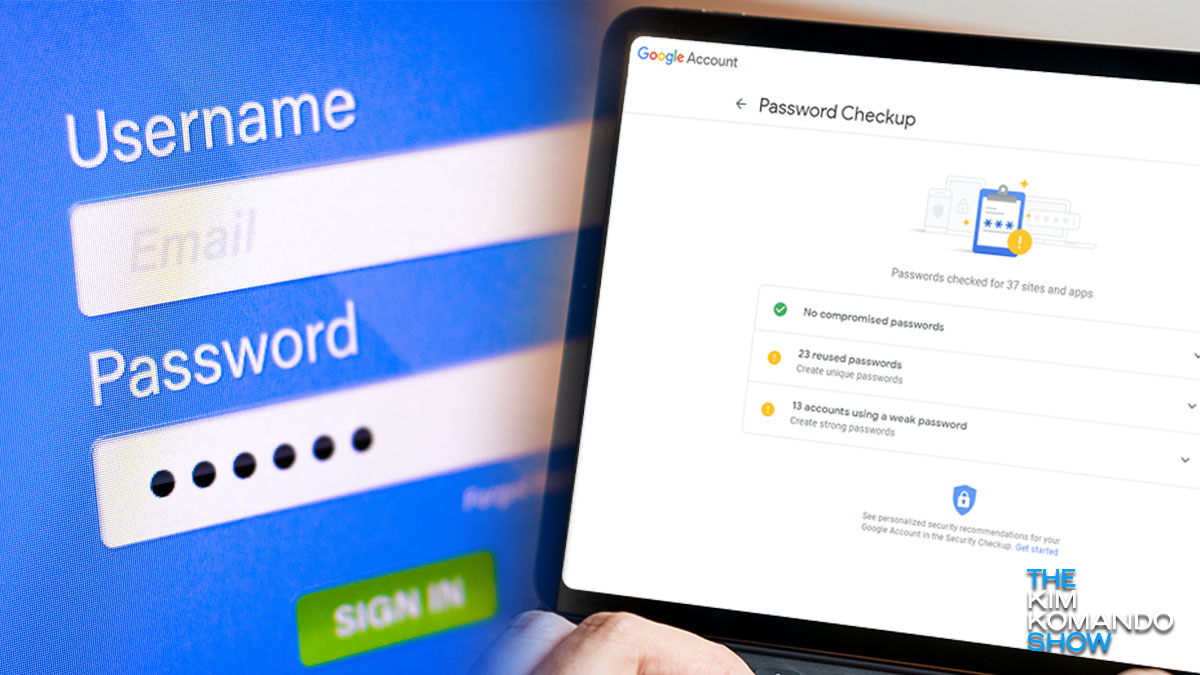
If you want to keep your personal information safe, you need to use strong passwords for all online accounts. Not all of us take the time to do that, even though easy or repetitive passwords put you at risk of being compromised by cybercriminals.
Ransomware attacks: You ain't seen nothin' yet
Ransomware cybercriminals aren’t only after the average person. They attack in big numbers. Why? They’re looking for a big payout from companies, schools and even hospitals.
Here's how to order an FDA-approved COVID test on Amazon

Vaccines for COVID-19 are being administered across the U.S., but infections are still at an all-time high. To make matters worse, cybercriminals are taking advantage of the vaccine to rip people off. Tap or click here for four ways scammers are out to get you.
A bug in Windows 10 means your passwords could disappear
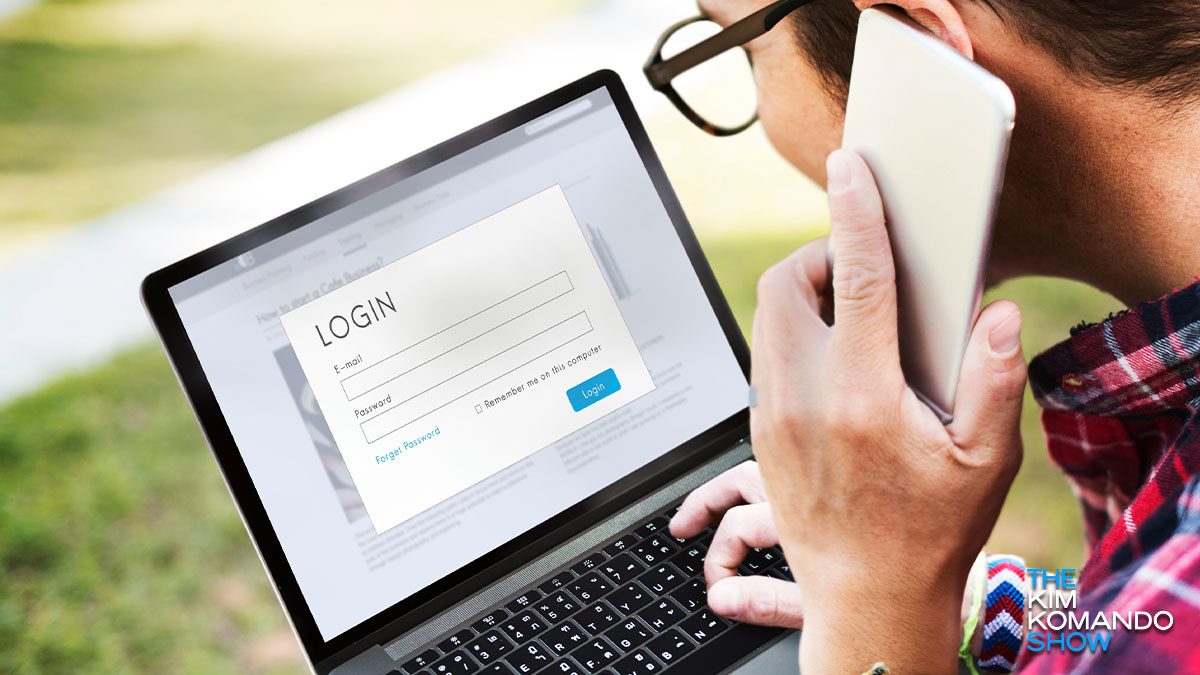
Software: Can’t live with it, can’t work without it. It sure would be nice if all computer programs worked the way they are supposed to every time we need them, but as you’re well aware, that’s not the case.
The reality is that bugs happen, and they happen often. Any Microsoft Windows user can tell you that much. A Windows patch that was released earlier this year fixed a whopping 113 bugs — and plenty of more updates have followed.
This clever post election scam is spreading
It’s been two days since the election, and I know that you were hoping for a break from all the politics. But as the election is being contested and the lawsuits begin, cybercriminals are circulating even more online election scams.
Scam alert! 5 Amazon cons you’ve got to watch out for
With millions of users around the world, Amazon has drawn scammers like moths to flames. There are many different cons that cybercriminals have tailored specifically for Amazon, and they’re complex enough to have stolen millions in cash. That’s why Kim’s giving you the low-down on 5 Amazon scams you’ve got to watch out for. With the holiday season right around the corner, this is essential listening for anyone who’s about to start shopping.